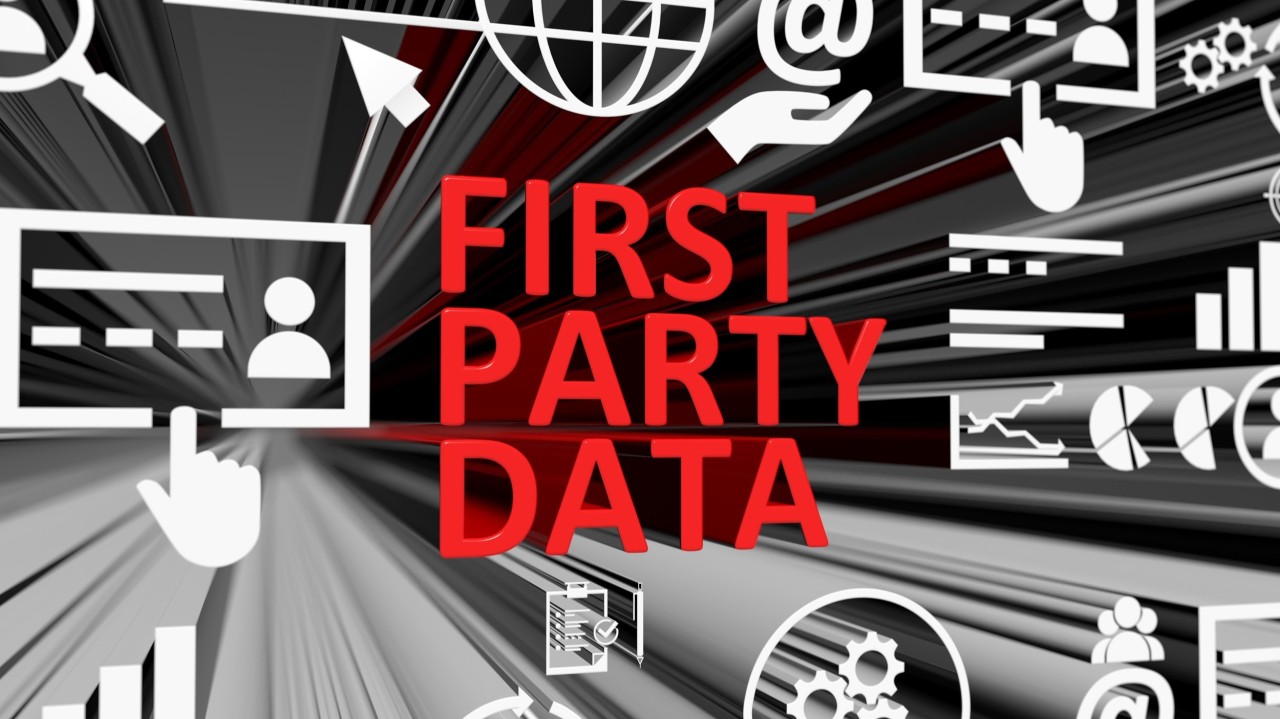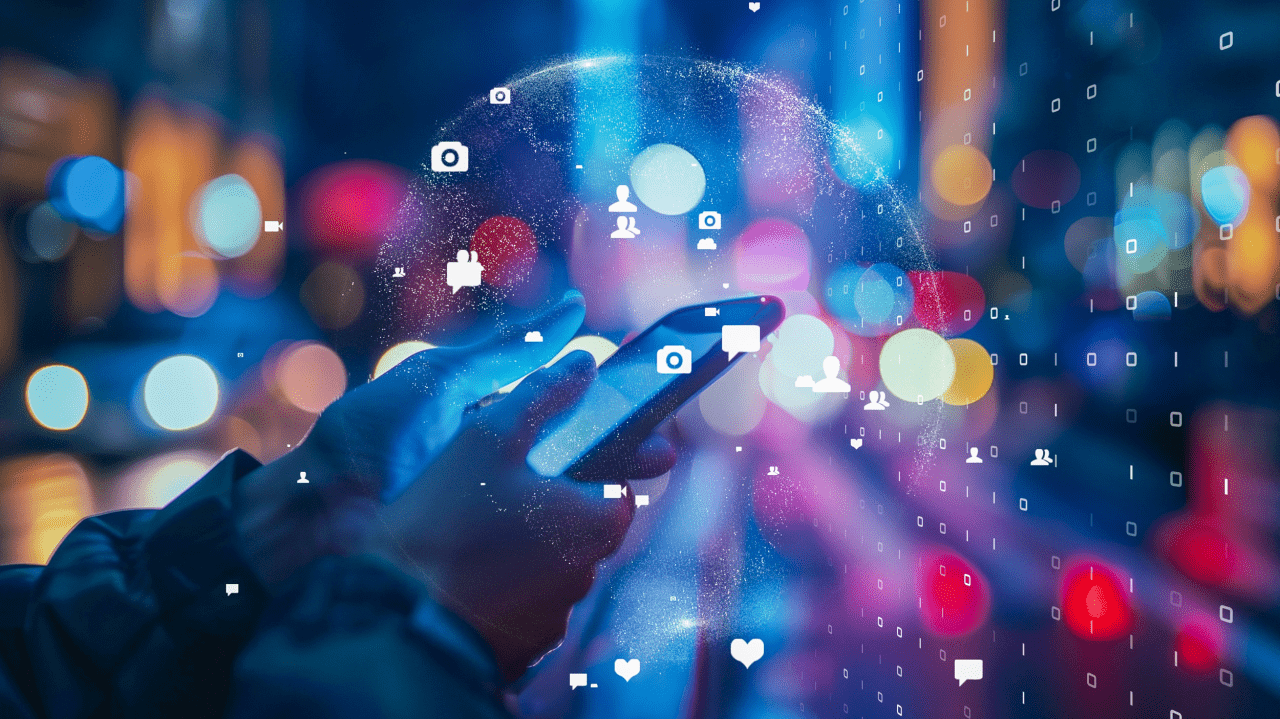News
The Top 50 Digital Marketing Use Cases for AI in the UK: Revolutionizing Marketing Strategies
In today’s digital landscape, marketers are constantly seeking innovative solutions to drive customer engagement, improve conversions, and stay ahead of the competition.
Artificial Intelligence (AI) has emerged as a powerful tool in the realm of digital marketing, enabling businesses to analyze vast amounts of data, automate processes, and deliver personalized experiences.
In this article, we will explore The Top 50 Digital Marketing Use Cases for AI. From personalized content recommendations to predictive analytics and social media ad optimization, these use cases showcase how AI is reshaping the marketing landscape and providing new opportunities for businesses to thrive.
- Personalized content recommendations: AI-driven personalized content recommendations can significantly enhance user engagement and conversions. According to a UK study by Segment, 71% of consumers express frustration with impersonal shopping experiences. By leveraging AI algorithms to analyze user behavior and preferences, businesses can provide tailored recommendations, leading to a 20% increase in sales, as reported by Evergage.
- Predictive customer segmentation: AI-powered predictive customer segmentation allows businesses to target their marketing campaigns more effectively. According to Econsultancy, 94% of businesses agree that personalization is critical to their current and future success. By utilizing AI algorithms to analyze customer data, businesses can identify patterns and create segmented customer groups, resulting in more relevant and targeted marketing efforts.
- Automated email marketing: AI automation in email marketing can significantly improve open rates and click-through rates. According to DMA, automated emails generate 320% more revenue than non-automated emails. By utilizing AI-powered tools, businesses can automate personalized email campaigns based on user behavior and preferences, resulting in higher engagement and conversions.
- Chatbots for customer support: AI-powered chatbots offer instant and efficient customer support. According to a survey conducted by Ubisend, 80% of UK consumers expect businesses to offer chatbot support. Implementing chatbots powered by AI allows businesses to provide 24/7 support, reduce response times, and enhance customer satisfaction.
- Sentiment analysis: AI-driven sentiment analysis helps businesses understand customer sentiment towards their brand or product. According to Sprout Social, 77% of customers are more likely to recommend a brand to others if they have a positive experience. By utilizing AI algorithms to analyze social media and customer feedback, businesses can gain valuable insights and respond effectively, leading to improved customer satisfaction and brand reputation.
- Programmatic advertising: AI-powered programmatic advertising platforms optimize ad placements and targeting based on real-time data. According to eMarketer, programmatic advertising accounted for 85% of all UK digital display ad spending in 2021. By leveraging AI, businesses can ensure their ads reach the right audience at the right time, resulting in improved ad effectiveness and ROI.
- Conversion rate optimization: AI-driven conversion rate optimization helps businesses analyze user behavior and optimize conversion rates. According to Smart Insights, the average UK conversion rate across industries is around 3%. By utilizing AI algorithms to analyze user behavior and run A/B tests, businesses can identify areas of improvement, personalize experiences, and increase conversion rates.
- Voice search optimization: With the rise of voice assistants, optimizing for voice search has become crucial. According to Voicebot, 36% of UK adults used voice search in 2021. By leveraging AI to optimize websites and content for voice search queries, businesses can enhance their visibility in voice search results and improve search rankings.
- Social media listening: AI-powered social media listening tools enable businesses to monitor brand mentions and industry trends. According to We Are Social, there were over 48 million social media users in the UK in 2021. By utilizing AI algorithms to analyze social media data, businesses can gather insights for reputation management, content strategy, and customer engagement.
- Automated content generation: AI-driven content generation tools help businesses save time and resources. According to Content Marketing Institute, 57% of UK marketers struggle to create enough content. By utilizing AI-powered tools, businesses can automate the generation of content, such as product descriptions or social media posts, based on predefined rules and data, ensuring a consistent and efficient content production process.
- Customer lifetime value prediction: AI-driven customer lifetime value prediction allows businesses to identify the potential value of customers over their lifetime. According to a study by Bain & Company, increasing customer retention rates by 5% can increase profits by 25% to 95%. By leveraging AI algorithms to analyze customer data and behavior, businesses can tailor their marketing efforts to high-value customers, improving customer retention and maximizing lifetime value.
- Dynamic pricing optimization: AI algorithms can analyze market conditions, demand, and competitor pricing to optimize pricing strategies dynamically. According to PwC, 74% of UK consumers compare prices online before making a purchase. By utilizing AI-powered dynamic pricing, businesses can maximize revenue and profit margins by adjusting prices in real-time based on market dynamics and customer behavior.
- Image and video recognition: AI-powered image and video recognition tools can identify brand logos, products, or specific objects in visual content. According to Statista, the UK digital video advertising market was valued at £3.69 billion in 2021. By leveraging AI, businesses can monitor and analyze visual content to facilitate brand monitoring, enable targeted advertising, and protect their intellectual property.
- Influencer identification and analysis: AI analysis of social media data helps identify relevant influencers for marketing campaigns. According to Influencer Marketing Hub, the influencer marketing industry is expected to reach £12.2 billion worldwide by 2022. By utilizing AI algorithms, businesses can identify influencers with high reach, engagement, and audience demographics that align with their target market, ensuring effective influencer partnerships and campaign success.
- Social media ad optimization: AI algorithms can analyze ad performance data and optimize social media ad campaigns. According to eMarketer, social media ad spending in the UK reached £5.97 billion in 2021. By leveraging AI, businesses can optimize targeting, bidding strategies, and creative elements in real-time, resulting in improved ad effectiveness, higher ROI, and increased conversions.
- Customer churn prediction: AI analysis of customer data helps predict churn probability, enabling businesses to implement retention strategies. According to Harvard Business Review, increasing customer retention rates by 5% can increase profits by 25% to 95%. By utilizing AI algorithms, businesses can identify customers at risk of churn, personalize retention efforts, and proactively prevent customer attrition.
- Competitive analysis: AI-powered tools help businesses analyze competitors’ online presence and marketing strategies. According to Ofcom, 97% of UK adults use the internet daily. By leveraging AI, businesses can gather insights on competitors’ ad campaigns, pricing strategies, content performance, and market positioning, enabling them to differentiate themselves and make data-driven marketing decisions.
- Fraud detection and prevention: AI algorithms can detect patterns of fraudulent activities in digital marketing, minimizing financial losses. According to the Association of Certified Fraud Examiners, businesses lose an estimated 5% of their revenue to fraud each year. By utilizing AI-powered fraud detection tools, businesses can identify and prevent click fraud, payment fraud, and other fraudulent activities, ensuring the integrity and effectiveness of their marketing campaigns.
- SEO optimization: AI analysis of search engine algorithms and website data provides insights for optimizing SEO strategies. According to Moz, organic search drives 53% of website traffic. By leveraging AI, businesses can optimize on-page and off-page SEO factors, identify keyword opportunities, improve search rankings, and increase organic visibility and website traffic.
- Social media scheduling and automation: AI-powered tools enable businesses to automate social media scheduling and optimize posting times. According to Statista, 77% of UK adults use social media daily. By utilizing AI algorithms, businesses can schedule and automate social media posts, analyze engagement data, and identify the best times to reach their target audience, maximizing the effectiveness of their social media marketing efforts.
- Content sentiment analysis: AI algorithms can analyze written content to determine sentiment, helping businesses understand the emotional response of their audience. According to a survey by Statista, 84% of UK consumers read online reviews before making a purchase decision. By utilizing AI-powered sentiment analysis, businesses can gain insights into customer opinions, identify positive or negative sentiment around their brand or products, and tailor their messaging and content accordingly to improve customer satisfaction and brand perception.
- Lead scoring and qualification: AI analysis of customer data and behavior helps businesses score and qualify leads. According to MarketingSherpa, companies that excel at lead nurturing generate 50% more sales-ready leads at a 33% lower cost. By leveraging AI algorithms, businesses can prioritize leads based on their likelihood to convert, personalize marketing efforts, and allocate resources effectively to maximize lead conversion rates and revenue.
- Predictive analytics for marketing campaigns: AI algorithms analyze historical campaign data to predict the success of future marketing initiatives. According to Gartner, 70% of enterprises will adopt AI for decision-making and customer experience improvement by 2023. By leveraging AI, businesses can forecast campaign performance, optimize budget allocation, and make data-driven decisions to maximize the impact of their marketing campaigns.
- Customer feedback analysis: AI-powered sentiment analysis tools process and analyze customer feedback from various channels. According to Qualtrics, 80% of companies believe they deliver superior customer service, but only 8% of customers agree. By utilizing AI algorithms, businesses can gain insights from customer feedback, identify common pain points or areas for improvement, and make data-driven decisions to enhance customer satisfaction and loyalty.
- Social media trend analysis: AI algorithms identify emerging trends and topics on social media platforms. According to Hootsuite, there were 50 million social media users in the UK in 2021. By leveraging AI-powered trend analysis, businesses can identify trending topics, hashtags, or discussions relevant to their industry or target audience, enabling them to create timely and engaging marketing content, and stay ahead of the competition.
- Content marketing optimization: AI analysis of content performance metrics and customer data helps businesses optimize their content marketing strategies. According to Content Marketing Institute, 61% of UK marketers believe their content marketing is ineffective. By utilizing AI, businesses can analyze content performance, identify gaps or opportunities, personalize content distribution, and create engaging and valuable content that resonates with their target audience.
- Customer journey mapping: AI analysis of customer data and touchpoints helps businesses map out the customer journey. According to Adobe, companies with strong customer journey management have a 54% greater return on marketing investment. By leveraging AI algorithms, businesses can gain insights into the customer journey, identify pain points or opportunities for improvement, and optimize the customer experience across various touchpoints, leading to increased customer satisfaction and loyalty.
- Ad creative optimization: AI algorithms analyze ad creative elements to identify the most effective combinations. According to a study by Smart Insights, 50% of ads are never seen by humans. By utilizing AI-powered ad creative optimization, businesses can automatically test and optimize ad elements such as images, headlines, and calls-to-action, ensuring the most engaging and impactful ads are presented to their target audience, resulting in higher click-through rates and conversions.
- Sales forecasting: AI analysis of historical sales data, market trends, and external factors helps businesses forecast future sales. According to McKinsey, companies that leverage AI for sales forecasting outperform their peers by 10%. By utilizing AI algorithms, businesses can accurately predict sales trends, plan inventory and resources, and make informed marketing decisions to drive revenue growth.
- Location-based marketing: AI-powered location data analysis helps businesses target audiences based on their physical proximity. According to Statista, 58% of UK consumers use their smartphones for location-based services. By leveraging AI, businesses can deliver personalized and relevant marketing messages to customers in specific geographical areas, driving foot traffic, and increasing conversions at local stores or events.
- Automated lead nurturing: AI automation in lead nurturing helps businesses nurture leads and drive conversions. According to Forrester, companies that excel at lead nurturing generate 50% more sales-ready leads at a 33% lower cost. By utilizing AI-powered tools, businesses can automate personalized email campaigns, content recommendations, and follow-ups based on user behavior and preferences, ensuring timely and relevant interactions with leads to increase the likelihood of conversion.
- Content curation and recommendation: AI algorithms can curate and recommend relevant content to users based on their interests and behavior. According to HubSpot, 78% of consumers believe that organizations providing custom content are interested in building good relationships. By leveraging AI, businesses can analyze user data and preferences to deliver personalized content recommendations, increasing engagement, and building stronger connections with their audience.
- A/B testing and optimization: AI automation can streamline and optimize the A/B testing process. According to a study by ConversionXL, 59% of companies run A/B tests but struggle with execution. By utilizing AI-powered tools, businesses can automate the process of testing different variations of campaigns, landing pages, or ads, and quickly analyze the results to identify the most effective elements for improved performance and conversions.
- Social listening for brand monitoring: AI-powered social listening tools help businesses monitor brand mentions and track online conversations. According to Brandwatch, 96% of UK internet users aged 16-64 have a social media account. By utilizing AI algorithms, businesses can stay on top of conversations and sentiment surrounding their brand, identify potential issues or opportunities, and effectively manage their online reputation.
- Customer behavior prediction: AI analysis of customer data and behavior helps businesses predict and understand customer behavior patterns. According to McKinsey, companies that use customer analytics extensively are more than twice as likely to generate above-average profits. By leveraging AI algorithms, businesses can analyze historical data and identify patterns to predict customer preferences, anticipate needs, and personalize marketing strategies to enhance customer experiences and drive conversions.
- Marketing automation and workflow management: AI-powered marketing automation platforms streamline and optimize marketing workflows. According to EmailMonday, automated emails account for 21% of email marketing revenue. By utilizing AI, businesses can automate repetitive marketing tasks, such as email campaigns, lead nurturing, and social media scheduling, freeing up time for marketers to focus on strategic initiatives and improving overall marketing efficiency.
- Conversion funnel optimization: AI analysis of user behavior at different stages of the conversion funnel helps businesses identify areas for improvement. According to Salesforce, 68% of companies have not identified or attempted to measure their conversion rates. By leveraging AI algorithms, businesses can analyze user interactions, identify bottlenecks or areas of friction, and optimize the conversion funnel to increase conversions and revenue.
- User experience optimization: AI analysis of user behavior helps businesses optimize the user experience on websites or mobile apps. According to Google, 53% of mobile site visitors leave a page that takes longer than three seconds to load. By utilizing AI-powered tools, businesses can analyze user behavior, identify pain points or areas of improvement in the user experience, and make data-driven optimizations to enhance engagement, reduce bounce rates, and drive conversions.
- Content performance prediction: AI algorithms can analyze historical data and content attributes to predict the performance of future content pieces. According to Content Marketing Institute, 80% of marketers struggle to demonstrate the effectiveness of their content marketing efforts. By leveraging AI, businesses can gain insights into content performance metrics, identify high-potential content ideas, and allocate resources to create impactful content that resonates with their target audience.
- Customer persona development: AI analysis of customer data helps businesses develop accurate and detailed customer personas. According to Econsultancy, 74% of marketers believe that targeted personalization increases customer engagement. By utilizing AI algorithms, businesses can analyze customer data, demographics, and behavior to create comprehensive customer personas, allowing for more targeted and personalized marketing efforts that resonate with specific customer segments.
- Predictive pricing optimization: AI analysis of market data and customer behavior helps businesses optimize pricing strategies. According to McKinsey, dynamic pricing can improve revenue by 2-5%. By leveraging AI-powered tools, businesses can analyze market conditions, competitor pricing, and customer demand to dynamically optimize prices, maximizing revenue and profit margins.
- Customer service automation: AI-powered chatbots and virtual assistants automate customer service interactions. According to Salesforce, 64% of customers prefer self-service over talking to a company representative. By utilizing AI, businesses can provide instant and accurate responses to customer queries, offer 24/7 support, and improve customer satisfaction by reducing response times and providing consistent support experiences.
- Influencer marketing ROI analysis: AI analysis helps measure the return on investment (ROI) of influencer marketing campaigns. According to Influencer Marketing Hub, businesses earn an average of $5.20 for every $1 invested in influencer marketing. By leveraging AI algorithms, businesses can track and analyze the impact of influencer collaborations, measure engagement, conversions, and brand awareness generated, and optimize influencer strategies to maximize ROI.
- Social media ad fraud detection: AI algorithms can detect and prevent ad fraud on social media platforms. According to Statista, ad fraud cost UK advertisers an estimated £406 million in 2020. By utilizing AI-powered tools, businesses can monitor ad campaigns, detect fraudulent activities such as click fraud or fake impressions, and ensure that their ad budgets are not wasted on fraudulent activities, maintaining the integrity and effectiveness of their digital advertising efforts.
- Predictive lead generation: AI analysis of customer data and behavior helps businesses predict potential leads and target prospects with high conversion probabilities. According to Gartner, companies that automate lead management processes have a 10% or greater increase in revenue within six to nine months. By leveraging AI algorithms, businesses can identify prospects with the highest likelihood of conversion, personalize marketing efforts, and allocate resources effectively to generate high-quality leads and drive revenue growth.
- Real-time campaign optimization: AI algorithms monitor campaign performance in real-time and make automated adjustments to improve results. According to Adobe, personalized campaigns have an average open rate of 18.8%, compared to 13.1% for generic campaigns. By utilizing AI-powered tools, businesses can optimize bidding strategies, targeting, and ad placements in real-time based on performance data, ensuring that marketing campaigns are continuously optimized for maximum effectiveness and ROI.
- Customer satisfaction analysis: AI analysis of customer feedback, surveys, and interactions helps businesses assess customer satisfaction levels. According to Zendesk, 92% of customers say that they would stop purchasing from a company after three or fewer bad customer service experiences. By leveraging AI algorithms, businesses can gain insights from customer feedback, measure customer satisfaction, identify areas for improvement, and take proactive measures to enhance customer service and loyalty.
- Influencer discovery and outreach: AI analysis of social media data helps businesses identify relevant influencers and streamline outreach processes. According to Influencer Marketing Hub, 67% of marketers consider finding relevant influencers their biggest challenge. By utilizing AI-powered tools, businesses can analyze influencer data, such as reach, engagement, and audience demographics, to identify the most suitable influencers for their marketing goals, automate outreach processes, and streamline influencer collaborations.
- Social media sentiment-driven marketing: AI analysis of social media sentiment helps businesses launch timely and relevant marketing campaigns aligned with public sentiment. According to Sprout Social, 59% of consumers have avoided a brand due to its social media posts. By leveraging AI algorithms, businesses can monitor social media sentiment towards specific topics or events, identify emerging trends or issues, and create marketing campaigns that resonate with the current sentiment, enhancing brand reputation and customer engagement.
- Sales and marketing data integration: AI analysis of integrated sales and marketing data provides comprehensive insights for data-driven decision-making. According to Harvard Business Review, companies that use integrated sales and marketing data achieve 38% higher sales win rates. By leveraging AI algorithms, businesses can integrate and analyze data from various sales and marketing platforms, gaining a holistic view of customer interactions, behaviors, and preferences, enabling them to make informed marketing decisions and drive revenue growth.
Artificial Intelligence (AI) is transforming digital marketing in the UK, empowering businesses to deliver personalized experiences, optimize marketing strategies, and drive revenue growth. From personalized content recommendations and predictive customer segmentation to automated email marketing and chatbots for customer support, AI-powered tools are revolutionizing the way businesses engage with their audience.
Additionally, AI enables sentiment analysis, programmatic advertising, conversion rate optimization, voice search optimization, and social media listening, among other use cases. By embracing AI in their digital marketing efforts, businesses can gain a competitive edge, enhance customer satisfaction, and achieve better results in today’s rapidly evolving digital landscape.





The Ultimate Social Media Guide
With the ever-growing power of social media, we use the latest techniques, video, and animation software to craft eye-catching social media assets that make your brand pop. Our designers, wielding Adobe Creative tools, create distinctive animations and graphics to illuminate your brand story and highlight your products or services. Want a unique design? No problem – we also offer bespoke designs to match your brand aesthetic.